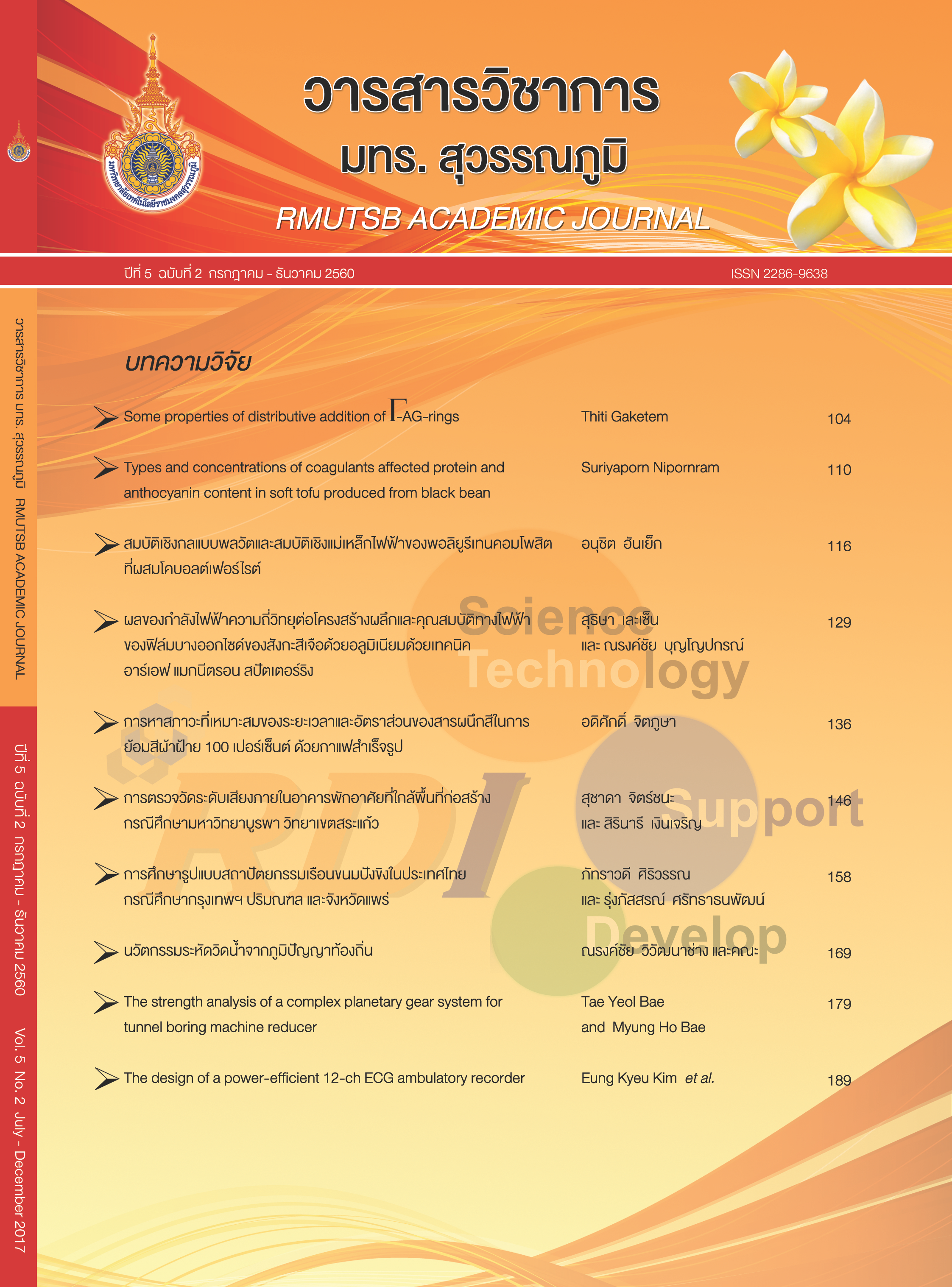Types and concentrations of coagulants affected protein and anthocyanin content in soft tofu produced from black bean
Main Article Content
Abstract
Black bean (Phaseolus vulgaris) is the legume for seed, which is considered important in the nutritional quality and economy of Thailand. The beans contain high protein, amino acid and antioxidant especially anthocyanin. Normally, a soft tofu is made from soybeans but these beans are insufficient for consumption in Thailand. Therefore, this research used black beans to produce soft tofu. Different types (CaSO4 and glucono delta lactone, GDL) and concentrations (1, 2 and 3%) of coagulants were used to investigate their effects on protein and anthocyanin contents of black bean soft tofu (BBST). GDL 3% coagulated the greatest amount of protein (6.97%) (p<0.05) and anthocyanin contents (1.292 mg 100 g-1) from black bean milk. The BBST was sensory evaluated. The GDL at 3% resulted in the following scores of sensory evaluation: color (5.83), odor (5.67), flavor (6.00), texture (6.17) and overall likeness (5.93). BBST contained grater protein (6.62%) and anthocyanin (1.423 mg 100 g-1) and lower lipid content than soybean soft tofu (SBST) (p<0.05).
Article Details
Published manuscript are the rights of their original owners and RMUTSB Academic Journal. The manuscript content belongs to the authors' idea, it is not the opinion of the journal's committee and not the responsibility of Rajamangala University of Technology Suvarnabhumi

